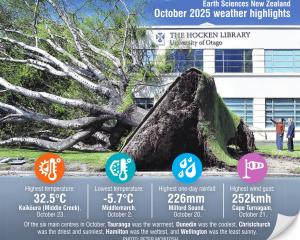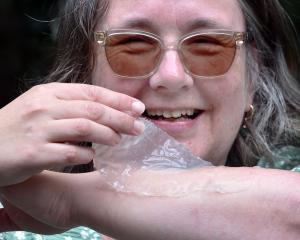The company marketing a Dunedin-made diagnostic device is competing for a slice of a more than $5 billion United States Government Ebola fund.
Developed by the University of Otago, the nportable device, dubbed Freedom4, was launched last August following six years of development.
It allows specialists to test for viruses and bacteria by identifying target DNA sequences without the need for samples to be taken back to a lab.
Ubiquitome chief executive Paul Pickering, who has partnered the university's commercialisation arm, Otago Innovation, to sell the device to the world, felt it was ''well positioned'' to get some of the funding, which was set aside after a push by US President Barack Obama.
''Many of these initiatives call for hand-held, battery-powered mobile, field or remote capable of detection of dangerous pathogens like Ebola, and the Freedom4 is the first device in the world to offer this capability with gold standard performance using lab-validated tests,'' Mr Pickering said.
Testing on the device had already been fast-tracked, but extra funding could be used for field-based pilot studies or procurement of devices for full-scale deployment.
The company had received help applying for funding from New Zealand Trade and Enterprise, particularly through its trade mission in Washington DC.
The developments came as the number of Ebola cases around the world was dropping.
''With any luck we've turned a corner in our fight against Ebola, but like others in the community we remain vigilant around the potential for a renewed threat from the disease.''
It was likely to learn in the second half of this year whether its funding application was successful.











